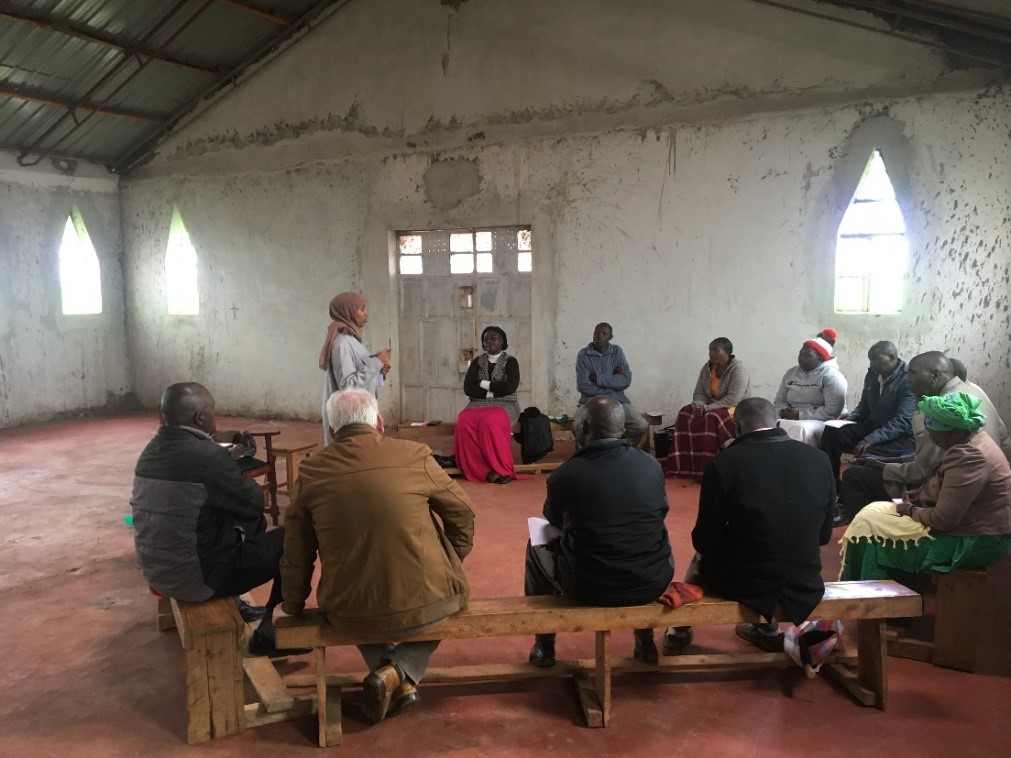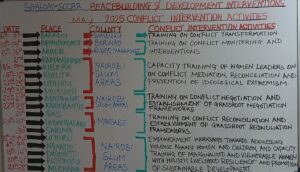By: Ms. Habiba Abdi Dika BA,
My name is Habiba Abdi Dika a recent graduate of the Bachelor of Justice and Peace program from the Catholic University of Eastern Africa (CUEA). I have always been passionate about creating positive change in communities affected by violent conflict. This passion led me to pursue a Master’s degree in Justice, Peace, and Cohesion at CUEA, and it also guided me to seek an internship opportunity with the Shalom Center for Conflict Resolution and Reconciliation (SCCRR). I will begin my masters this September (2024). Shalom-SCCRR is an inter-religious peacebuilding non-governmental organisation that is committed to working to end the cycle of inter-ethnic, religious ideological extremism, violence against women and children, school educational development, and prevention of human and organ trafficking in the informal urban settlements and the tribal lands of Eastern Africa.
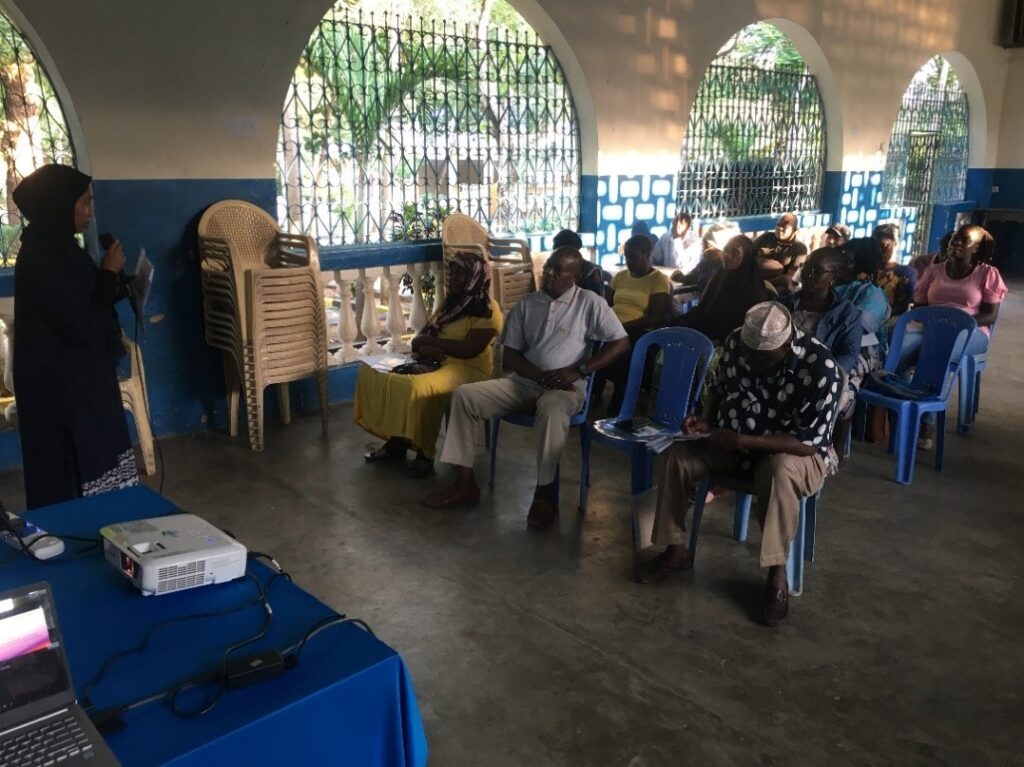
The values and principles of the Shalom-SCCRR align closely with my values and beliefs as a Muslim, particularly in Shalom’s emphasis on peace, justice, conflict resolution, reconciliation and interreligious dialogue. Islam teaches the importance of promoting peace and resolving conflicts through understanding and cooperation, principles that are central to Shalom’s work and core values. The organization’s inclusive approach, which brings together people from different ethnicities and religious backgrounds to work towards common goals of peace, justice and reconciliation resonates deeply with the Islamic teachings of respect, compassion, and the pursuit of the common good.
My time at Shalom has provided me with an invaluable opportunity to witness and participate in the organization’s grassroots conflict transformation and peace building interventions, particularly in the impoverished and marginalized Nairobi’s informal settlements/slums, including Kibera, Mathare, Kangemi, Kabiria, Kawangware(Muslim), Satelite, Dagoretti, Waithaka, Riruta, just mention a few, and also other conflict environments in Molo and Kuresoi in Nakuru County, and in Timbwani in Likoni, located in the coastal region of Kenya. These areas are often characterized by poverty, lack of basic human and ontological needs, structural violence problems, historical injustices, religious ideological extremism, among others which exacerbate tensions and violent conflicts among different the communities.
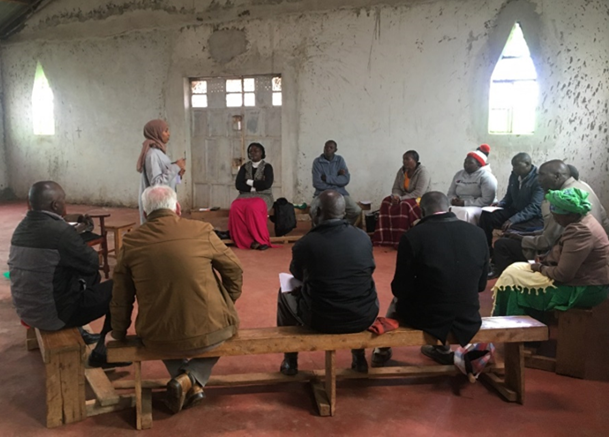
During my internship period at the organization I have had the opportunity of participating in one of its outreach programs, the Shalom Empowerment Center (SEC), that is primarily attending to violence against women and children in the slum areas around Nairobi. The center offers peace building and conflict intervention training to women from these informal settlements. The significance of this initiative cannot be overstated. Women in these areas are often the most vulnerable to violence, whether it be domestic, sexual, or inter-ethnic. By empowering them with the knowledge and skills to intervene in conflicts and promote peace, Shalom is enabling these women to become catalysts for change within their communities. This empowerment is crucial not only for their safety but also for the stability and cohesion of the community as a whole, going forward.
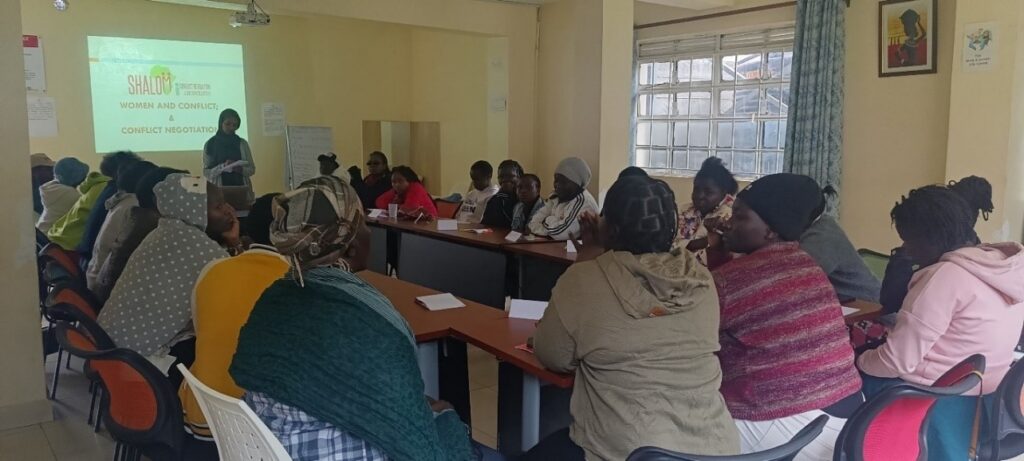
My journey with Shalom also took me to the conflict-prone areas of Molo and Kuresoi constituencies in Nakuru County, which have a history of political and inter-ethnic violence. Here, I witnessed the handover of a conflict transformation project, resulting in peace, which Shalom has been empowering for seven years. The transformation in these communities was palpable, with testimonies from residents highlighting the profound impact of Shalom’s interventions. One community member, Mr. Njau, poignantly remarked, “Cows are now living outside the house because there is peace and security realized through the trainings of Shalom.” This simple yet powerful statement encapsulates the essence of Shalom’s work – transforming lives by addressing the root causes of conflict and fostering sustainable peace.
Another highlight of my internship was attending Shalom SCCRR workshops on peace building in Timbwani Mombasa, a region grappling with challenges such as religious ideological extremism. The workshops were a testament of the power of dialogue and cooperation across religious divides, as participants from different faith backgrounds came together to work towards preventing violence and creating peace in their community. This experience was particularly inspiring, as it underscored the importance of inclusivity and collaboration in peacebuilding efforts, aligning with Shalom’s mission of promoting cohesion and understanding in conflict-ridden areas.
One of the most inspiring experiences during my internship was visiting schools in Kibera where Shalom-SCCRR has implemented peace education programs through peace clubs. Growing up in environments plagued by violence, children in these areas often internalize conflict as a way of life. Shalom’s peace education initiatives are crucial in breaking this cycle by instilling in young learners the values of tolerance, dialogue, and non-violence. These programs not only enhance the learning experience by creating a safer and more supportive environment but also prepare the next generation to be ambassadors of peace in their communities. By nurturing a culture of peace from a young age, Shalom is laying the foundation for long-term societal transformation.
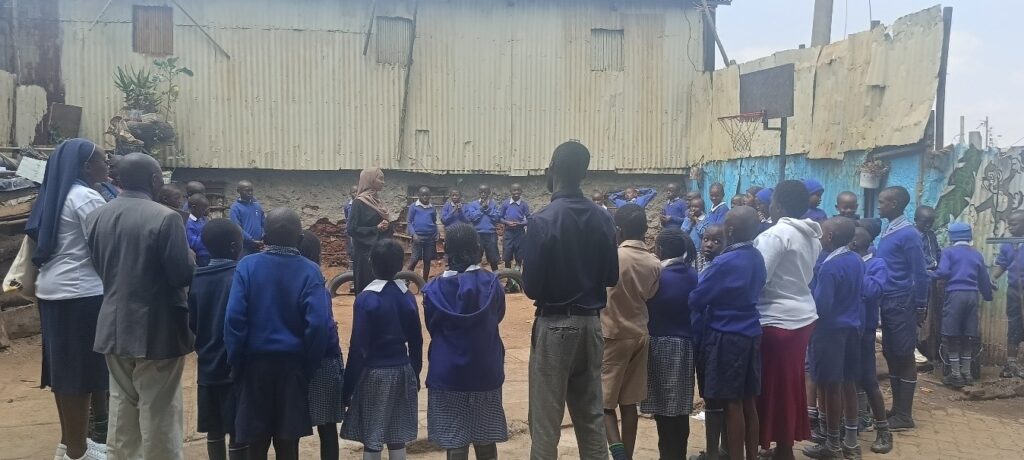
In addition to peacebuilding, Shalom’s Mary and Joseph Life Center (MJLC) that promotes the human rights and dignity of women and children, addressing all acts of violence against them from conception to natural death, align with Islamic teachings, which emphasize the sanctity of life and the protection of all living beings. In Islam, life is considered a sacred gift from Allah, and efforts to preserve and enhance life, such as Shalom’s initiatives, reflect the Islamic principles of compassion, justice, and the duty to care for the most vulnerable members of society. The Center provides Crisis Pregnancies Resource and Support Services, Educational Workshops/Seminars and Counselling services. The project also has a unique project, called the MJLC Livelihood Resilience Program that equips women with practical skills for psychological, spiritual maturity and economic development, such as business idea development, budgeting, marketing, and soap making, etc. This aspect of Shalom’s work is particularly important as it addresses the personal, community and economic disenfranchisement and structural violence that often underlies conflict in these communities. By providing women with the tools to achieve financial independence, Shalom is not only improving their personal economic situations but also fostering a sense of agency and resilience that is vital for sustaining peace. Economic empowerment allows these women to better support their families, reduce dependency on unstable sources of income, and contribute positively to their community’s development.
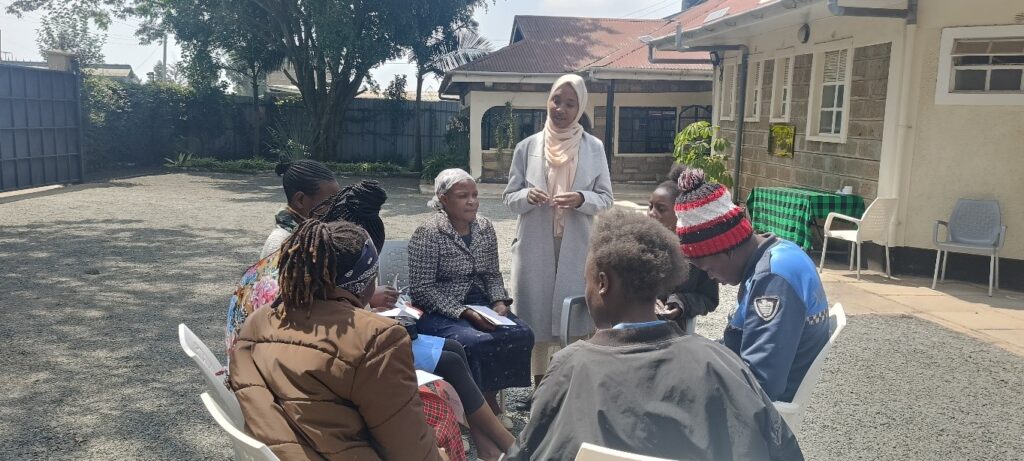
Throughout my experience with Shalom, I have seen firsthand the organization’s commitment to its mission of tackling the root causes of conflict and fostering lasting peace through education, empowerment, and community engagement. Shalom’s vision of a world where peace and development are attainable for all is reflected in its holistic approach to conflict resolution – from empowering women in informal settlements to nurturing peace among school children, and from transforming conflict-prone communities to bridging religious divides.
As I look forward to continuing my education and career in Justice and Peace, I am profoundly grateful for the opportunity to learn from and contribute to Shalom’s transformative work. The skills, insights, and experiences I have gained will undoubtedly shape my future endeavors in promoting peace and reconciliation in Africa and beyond.
Author: Ms. Habiba Abdi Dika BA (MA Candidate), Shalom-SCCRR In-Training Capacity Program
RELEVANT LINKS
- Shalom-SCCRR. (2024). 2023 Shalom-SCCRR Results and Achievements. https://shalomconflictcenter.org/wp-content/uploads/2024/01/2023-Peacebuidling-Conflict-Transformation.pdf
- Shalom-SCCRR. (2024). 2009-2023 Shalom-SCCRR Results and Achievements. https://shalomconflictcenter.org/wp-content/uploads/2024/05/14-Years-of-Shalom-SCCRR-2009-2023-LV-Full-Report.pdf
- Shalom-SCCRR. (2022). Shalom Empowerment Center (SEC) Addressing Violence against Women and Children: Concept Document.https://shalomconflictcenter.org/eastern-africa-shalom-empowerment-center-sec-addressing-violence-against-women-and-children-concept-document/
- Devine, P. R. (2017). “Radicalization and Extremism in Eastern Africa; Dynamics and Drivers”, published in the Journal of Mediation and Applied Conflict Analysis, 4 (2). http://mural.maynoothuniversity.ie/9086/7/PD-Radicalisation-2017.pdf
- Shalom-SCCRR. (2024). Shalom-SCCRR Recent Conflict Transformation Successes. https://shalomconflictcenter.org/shalom-sccrr-recent-conflict-transformation-successes/
- Moran, M. (2020). Eastern Africa: Shalom-SCCRR receives United Nations (UN) Accreditation. https://shalomconflictcenter.org/3901-2/
- Butler, J. (Oct, 2023). Harvard Kennedy School; A Conversation with Rev. Dr. Patrick Devine and Paula Soumaya Domit. https://shalomconflictcenter.org/wp-content/uploads/2024/01/Harvard_Kennedy_School_Article_WITH_PHOTOS_MAP_1_17_24_FINAL.pd

